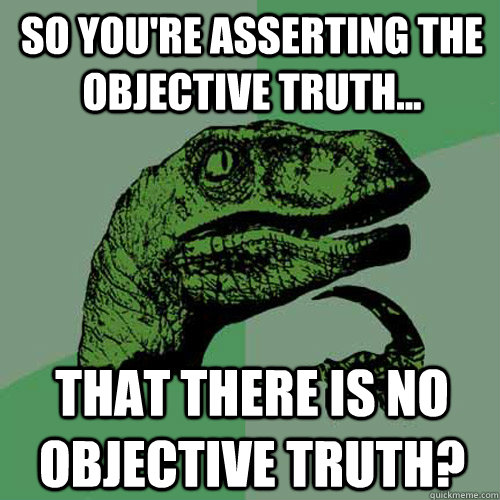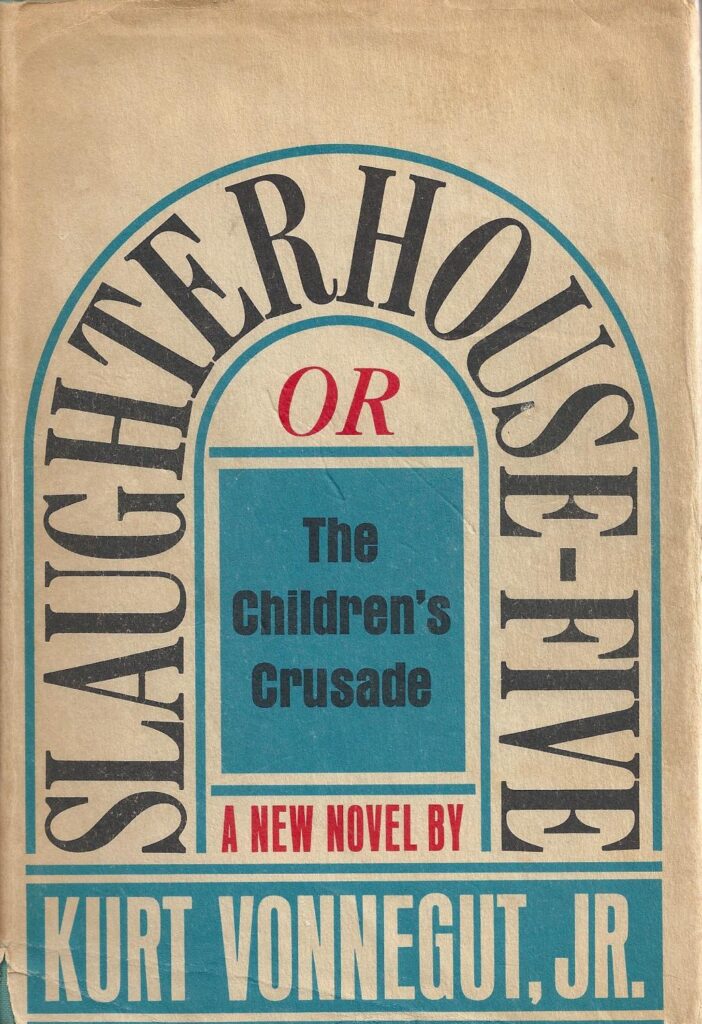“Postmodern literature” (1945-c.2001) refers to the dominant ideas and forms of literature in the English speaking world after World War II ended in 1945.
While Modern literature demonstrates disillusionment and alienation from traditional institutions, and seeks redemption through experimentation with new literary forms, Postmodern literature rejects the modern world’s traditional institutions—the state, the church, the corporation, the Academy—by questioning the possibility that language itself can reflect reality.
Postmodern writers, therefore, often comment on or draw attention to language itself in their literature. Consequently, absurd or comic irony has become a peculiar hallmark of the postmodern period.

What are Representative Works of Postmodern Literature?
If the Moderns read the Great War as the failure of Enlightenment progress, then the Postmoderns read World War II as a failure of Modernism.
Where Modern period writers experimented with form in order to “Make It New,” as the modernist Ezra Pound advised, Postmoderns, as Jean-François Lyotard suggests in The Postmodern Condition, do not believe in any grand narrative. Instead, there is only a clash of various narratives. That is, various groups and ideologies all seek to impose power through language in barely-masked tribalism.
Postmodern authors, therefore, draw attention to the artificiality of language itself and the imposition of power they believe language demands, resulting in the characteristic absurdity, self-referentiality, and comic irony mentioned above.
(Why, for example, does misterdoctorcoachguy choose the dates of the world wars to demarcate the last two literary periods? What grand narrative is he pushing?!)
Yet, might we not consider the Postmoderns’ foregrounding of language and style just another Modern experiment? Another attempt to overcome alienation and disillusionment with an experiment in form?
We generally refer to twentieth century and twenty-first century literature as belonging to the Postmodern period. But is postmodernism itself just another type of modernism?
Modern or Postmodern?
Many significant works of this late literary period, in fact, seem to belong to the Modern period. The most famous antiheroes of Arthur Miller’s plays, Willie Loman and John Proctor, certainly embody the Modern period’s disillusionment and concern with fallen institutions, but Miller is not especially concerned with language games. Tom Stoppard’s characters Rosencrantz and Guildenstern, on the other hand, are much more postmodern in that they are concerned about finding themselves trapped inside Shakespeare’s play Hamlet.
“Words, words. They’re all we have to go on.”
Tom Stoppard, Rosencrantz and Guildenstern are Dead
Sylvia Plath’s poetry reflects the despair of a disaffected young western woman in a modernist way, alluding to myth in poems such as “Lorelei” in order to make it new. The more clearly postmodern Carol Ann Duffy has her wives of the heroes from classical mythology, in The World’s Wife, make contemporary references, never allowing the reader to forget that we are reading poetry referring to other poetry even as she conveys her feminist message.
Postmodernism, consequently, might be considered just another strain of a continuing period of modernism.
Character and Story: The Best of Postmodern Literature
At its best, postmodern poetry can conjure character from its mash-ups of surface-level, self-referential statements. Michael Ondatjee’s The Collected Works of Billy the Kid illuminates its subject through a variety of news accounts, incidents, odd facts, and photographs of and about the legendary outlaw.
The best postmodern novels, too, conjure character and story even if the language remains a focal point while we read: Ralph Ellison’s Invisible Man often weaves its words as if they were notes in a jazz song, Kurt Vonnegut’s Slaughterhouse-Five crazily mixes a war memoir with a science fiction tale, and Toni Morrison’s Song of Solomon features characters who do not seem to realize they are embodying biblical namesakes or acting out myths of the Gullah people.
The strongest novel of the past fifty years, Cormac McCarthy’s Blood Meridian, stars the villain Judge Holden, a call-back to John Milton’s Satan from Paradise Lost. The Judge also seems to be a personification of the postmodern belief that knowledge is merely an expression of power. Is the Judge a damning critique of postmodernism?
What Comes after Postmodernism in Literature?
In the years since the end of the Cold War, the rise of the Internet, and the terror attacks of 2001, the West has experienced an obvious change; misterdoctorcoachguy thinks this change is a move away from postmodernism.
What will the literary period we are now experiencing be called? What contemporary works will become representative?
Those raised on South Park and memes have inherited a long history of writing in English. Whether they choose to accept that inheritance—and read—will shape the answers to these questions.

“There is no beginning, no middle, no end, no suspense, no moral, no causes, no effects. What we love in our books are the depths of many marvelous moments seen all at one time.”
Kurt Vonnegut, Slaughterhouse-Five
Representative Works of Postmodern Literature
Arthur Miller’s Death of a Salesman and The Crucible; Chinua Achebe Things Fall Apart; poetry of Seamus Heaney and Carol Ann Duffy; Iris Murdoch’s A Fairly Honourable Defeat and other novels; Michael Ondatjee’s The Collected Works of Billy the Kid; David Mamet’s Glengarry Glen Ross; Kurt Vonnegut’s Slaughterhouse-Five; Ralph Ellison’s Invisible Man; Toni Morrison’s Song of Solomon; Rudolfo Anaya’s Bless Me, Ultima; poetry of Sylvia Plath, William Carlos Williams, Allen Ginsberg, Jack Kerouac, Robert Creeley, Amiri Baraka, and Denise Levertov; Cormac McCarthy’s Blood Meridian; Tom Stoppard’s Rosencrantz and Guildenstern are Dead

